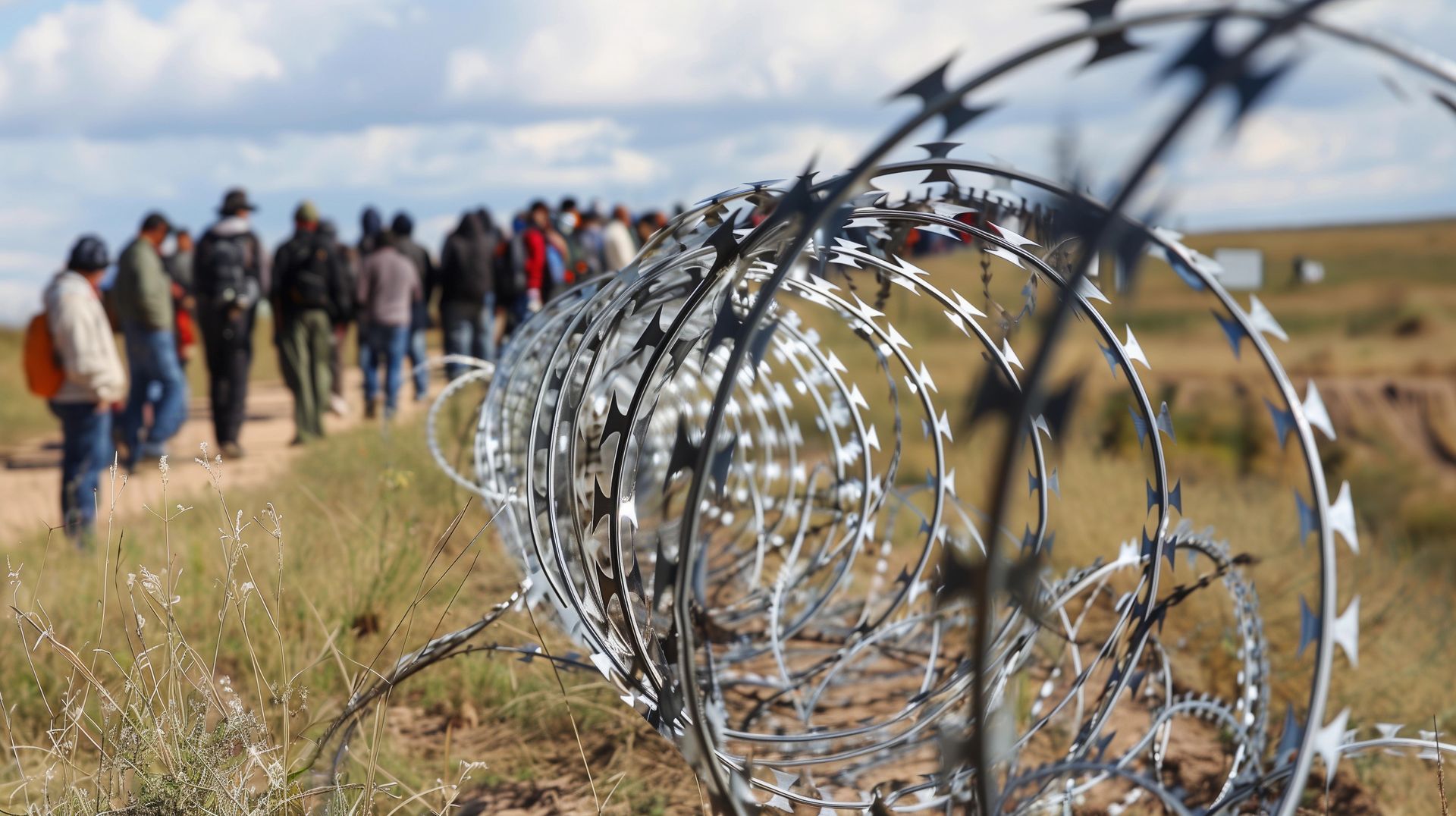Trump's intention to block judges who fail to protect government decisions.
March 28, 2025
Recently, the Chief Justice of the United States Supreme Court, John Roberts, has had public disagreements with President Donald Trump.

Recently, the Chief Justice of the United States Supreme Court, John Roberts, has had
public disagreements with President Donald Trump. The conflict arose after District
Judge James E. Boasberg issued an order blocking the deportation of Venezuelans
under the Alien Enemies Act of 1798. In response, Trump called Judge Boasberg a
"radical left-wing lunatic" and demanded his removal. This request was rejected by
Chief Justice Roberts, who emphasized that impeachment is not an appropriate
response to disagreements with judicial decisions and stressed the importance of the
appeals process.
This situation highlights the tensions between the executive and judicial branches,
especially when the impartiality or integrity of the judicial system is questioned. The
confrontation has been seen as an institutional clash, with the Chief Justice openly
opposing the political pressures exerted by former President Trump, reaffirming the
importance of judicial independence.
As reported by The Wall Street Journal, "Roberts' recent remarks are not the first time
he has rebuked politicians for undermining the judiciary. In 2018, after Trump attacked
what he called an 'Obama judge' for ruling against him in a separate immigration case,
Roberts issued a statement defending the courts."
"We don’t have Obama judges or Trump judges, Bush judges or Clinton judges,"
Roberts said at the time. "What we have is an extraordinary group of dedicated judges
who make their best efforts to dispense fair justice to those who appear before them."
To this, Trump responded: "Sorry, Chief Justice John Roberts, but you do in fact have
‘Obama judges,’ and they have a very different point of view from the people
responsible for the safety of our country."
As The Wall Street Journal explains in one of its articles: "Threats of impeachment
against district judges over preliminary orders issued at the start of litigation are virtually
unheard of—and even less so when coming from the president. To remove a judge, the
House would have to approve articles of impeachment, and the Senate, after a trial,
would need to convict by a two-thirds vote. Although the likelihood of this happening is
low, Roberts and other judges have warned that the inflammatory rhetoric of political
leaders can lead to the intimidation of judges and even threats to their safety and that of
their families."
Meanwhile, the court of appeals has not made any decision regarding the removal of
Boasberg, and he continues to carry out his duties, such as requesting more information
from the government about recent deportation flights. The government continues to
evade this request, providing little information while vehemently insisting on Boasberg's
removal.
If you have any questions about how this could affect your immigration case, please
don't hesitate to contact us.


Recently, several cases have been reported in which the U.S. Department of Homeland Security (DHS) has sent communications to citizens and legal residents, urging them to leave the country or face potential legal action. Among the various cases, one that has drawn particular attention is that of Nicole Micheroni, an immigration attorney born in the U.S., who received an email from DHS dated April 11, informing her that she must leave the country within seven days. The message, titled "Notice of Parole Termination," stated that her parole had been revoked. Although DHS later suggested that the email may have been sent in error due to her email address being associated with clients, the situation reveals a concerning practice. This incident indicates that DHS may be sending intimidating mass emails intended to pressure recipients to leave the country. According to the website Nbcboston , “In a statement, a senior official from the Department of Homeland Security told NBC10 Boston that U.S. Customs and Border Protection (CBP) is issuing parole termination notices to individuals who do not have legal status to remain in the country, and that 'CBP used the known email addresses of the foreign nationals to send the notifications. If a non-personal email was provided—such as one belonging to a U.S. citizen—it’s possible that the notifications were sent to unintended recipients. CBP is monitoring the communications and will address any issues on a case-by-case basis.’” These actions reflect an escalation in immigration policies under the Trump administration, affecting not only immigrants but also U.S. citizens and legal residents. If you need legal assistance or additional information on immigration matters, contact us to schedule an appointment at (719) 602-4477.

Jeanette Vizguerra, a prominent immigrant and labor rights activist in Colorado, was arrested by U.S. Immigration and Customs Enforcement (ICE). She is currently being held in an ICE facility in Aurora, Colorado, awaiting deportation to Mexico. ICE claims that Vizguerra entered the U.S. illegally from Mexico in 1997 and has a final deportation order. However, her legal team challenges the validity of this order, arguing that it was reinstated incorrectly and that she has received due process. A hearing is scheduled for March 28, 2025, in which U.S. District Judge Nina Wang will consider these arguments and decide on her potential release. This arrest is particularly significant, as Vizguerra’s case gained national attention during the previous Trump administration. She became known as an immigrant rights activist after, in 2017, to avoid deportation, she moved into a church basement with her three children. Later, she was named one of Time magazine’s 100 most influential people of 2017. On March 17, Vizguerra was arrested by ICE while on a break from her job at Target (a store that, by the way, has openly declared itself non-protective of immigrants). According to reports, during the arrest, officials told her, "We finally have you." This statement has been interpreted by many as a clear example of persecution toward activists. According to The New York Times, "Her detention has already sparked backlash from Colorado’s Democratic politicians and immigrant rights advocates, who accused the Trump administration of attempting to silence critics of its harsh immigration policies." The New York Times quoted Denver Mayor Mike Johnston, who condemned the arrest of Ms. Vizguerra as "a Putin-style persecution of political dissidents," which ensnared a working-class mother who had dedicated her life to helping other undocumented immigrants. “We don’t see this as immigration law enforcement,” he said in an interview. “This is about targeting political opponents and using the power of the government to punish them.” Colorado Democratic Senator Michael Bennet called Ms. Vizguerra a "pillar of her community" and urged U.S. Immigration and Customs Enforcement officials to release her. An ICE spokesperson confirmed her arrest to The Guardian, stating that Vizguerra was "arrested without incident" on Monday and would "remain in ICE custody pending her deportation from the United States." The spokesperson described Vizguerra as “a convicted criminal alien from Mexico who has a final deportation order issued by a federal immigration judge” and stated that she “illegally entered the United States near El Paso, Texas, on December 24, 1997, and has received due process in a U.S. immigration court.” However, on Tuesday, Vizguerra's attorneys filed a writ of habeas corpus with the court, urging ICE to bring Vizguerra before the court to determine if her detention is legal. “Vizguerra has fought her own deportation since 2009 while advocating for immigrant rights, labor protections, and family unity,” they stated in a release from the Colorado Immigrant Rights Coalition. In conclusion, this particular case draws attention not only because Vizguerra was arrested, but also because it is another concerning case related to activists being repressed for being openly against the policies of the Trump administration. At Pikes Peak Immigration, we continue to fight for immigrant rights. If you have any questions or need advice on immigration matters, don’t hesitate to contact us.

The administration of President Donald Trump has taken measures to strengthen policies on the detention of migrant families, including reopening contracts with private prison companies to operate detention centers for this group. According to reports collected by Telemundo, the U.S. Immigration and Customs Enforcement (ICE) is in the process of soliciting proposals from private prison companies to restart detention centers specifically for migrant families. This initiative aims to increase detention capacity and improve living conditions for detained migrant families. As explained by Telemundo in one of its articles, "The governments of former President Barack Obama and the first term of Trump detained parents with their children, but former President Joe Biden ended that practice in early 2021. Under the terms of a 1997 court agreement, ICE is prohibited from holding families with children in regular detention centers, and they must be detained for less than 21 days." Regarding the same issue, The Wall Street Journal commented, “The private prison industry, represented by companies such as GEO Group and CoreCivic, has shown active interest in these contracts. These companies are expanding their capacities and hiring additional staff in anticipation of an increase in demand for detention beds under Trump’s immigration policies. For example, GEO Group plans to increase its bed capacity from 13,500 to more than 31,000, while CoreCivic aims to expand its capacity to 25,000 beds, including the possibility of detaining families and unaccompanied minors.” "Furthermore, it has been reported that the Trump administration is considering using defense funds to allow civilian companies to quickly expand temporary detention centers, such as those housing migrant families. This strategy seeks to increase detention capacity without the need to build new facilities." (Telemundo) In summary, the Trump administration is strengthening migrant family detention policies by reopening contracts with private prison companies, expanding detention capacity, and using defense funds to improve and expand existing facilities. These measures aim to address the increase in the number of migrants and reinforce the government’s immigration policies. The website Immigrants' List aptly states, “This is a prime example of Donald Trump's performative immigration policy, reflecting his desire to create a spectacle rather than address the complexities of our immigration system in a fair and humane manner. Trump is using immigration as a political theater tool to create fear, control, and division. Moreover, Trump's family detention policy is designed to fill the pockets of private prisons, contributing to the expansion of the industrial prison complex, all at the expense of humanity and justice. By intensifying detention and deportation efforts, the Trump administration contributed to the growing reliance on private contractors to manage immigrant detention centers. This has been a key way in which for-profit prison companies like CoreCivic have benefited from the incarceration of immigrant families." As for us, PIKES PEAK IMMIGRATION, we remain committed to fighting for immigrants' rights and helping families stay united. Call us if you need advice on immigration matters.

Share On: